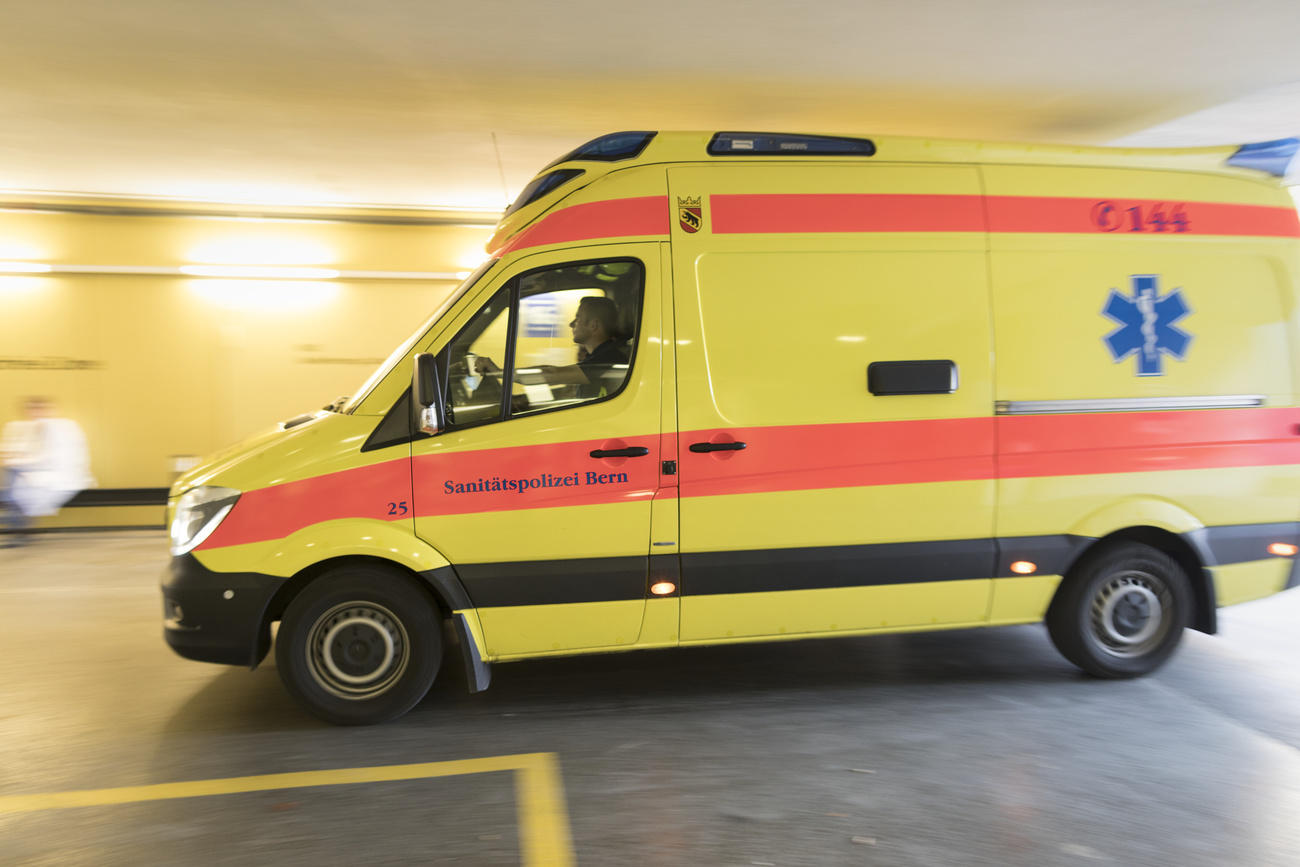
Swiss overestimate survival chances after resuscitation

Swiss people significantly overestimate the success of resuscitation after cardiac arrest, according to a study. Medical experts are therefore calling for better information for patients.
Around 8,000 people in Switzerland suffer from a cardiac arrest every year. When the heart stops and no oxygen is being pumped to the vital organs, these organs become damaged. The brain in particular is very sensitive to the lack of oxygen.
“Nerve cells in the brain become damaged from the very first minute without blood circulation, and the chance of surviving without any neurological deficits starts to decrease exponentially,” study leader Sabina Hunziker from the University of Basel said in a statementExternal link on Tuesday.
If a cardiac arrest occurs outside a hospital, the chances of survival are around 10%. If the cardiac arrest occurs in a hospital, this doubles to 20%. “Of those who survive, around half will have cognitive limitations, and just 25% will be able to continue living at home independently without assistance,” Hunziker said, adding that not many people were aware of this.
In a studyExternal link published in the journal Resuscitation Plus, 80% of respondents said they wanted to be resuscitated. The most important predictor for this decision was the assessment of the chances of survival.
“If people knew that their chances of survival were so low and that the risk of – in some cases severe – brain damage was so high, a lot of them would probably decide against being resuscitated,” Hunziker said.

More
Heart disease and cancer still biggest causes of death
Informed decision
Hunziker and her team of researchers are therefore calling for better information. Information could be provided by GPs, for example, who discuss advance directive, a document declaring the will of a patient in case of medical deterioration, with their patients, or in the hospital when patients are admitted.
“When a patient is admitted to hospital, we always discuss their preferences for or against resuscitation, and document their decision in their medical record. It is important to clarify what resuscitation in the event of a cardiac arrest actually means, so that patients can make an informed decision that makes the most sense to them,” she explained.

In compliance with the JTI standards
More: SWI swissinfo.ch certified by the Journalism Trust Initiative





























You can find an overview of ongoing debates with our journalists here . Please join us!
If you want to start a conversation about a topic raised in this article or want to report factual errors, email us at english@swissinfo.ch.